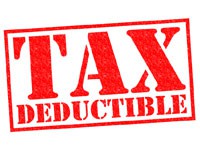Cook County Property Tax Exemptions
 Have you ever wondered if you’re eligible for a property tax exemption in Cook County? If so, wonder no more: here’s your guide to determine the right Cook County property tax exemption(s) for you and your appeal.
Have you ever wondered if you’re eligible for a property tax exemption in Cook County? If so, wonder no more: here’s your guide to determine the right Cook County property tax exemption(s) for you and your appeal.
If you haven’t claimed an exemption listed below that applies to you, contact us immediately to see if we can claim a significant property tax reduction for you today.
Homestead Exemption (aka Homeowner Exemption)
You can receive the Homeowner Exemption of $7,000 equalized assessed value (EAV) – which will increase to $10,000 EAV in 2018 – if you own or have a lease or contract which makes you responsible for the real estate taxes of the residential property. As such, you qualify for the Cook County homeowner exemption if you meet all of the following criteria:
- Live in the property as of January 1 of the tax year
- Use the property as your principal dwelling place
- Assume legal responsibility to pay the property taxes
Senior Citizen Exemption
The Senior Citizen Exemption provides tax relief by reducing the EAV of an eligible residence by $5,000 (increases to $8,000 in 2018). To qualify, a Cook County taxpayer also must be at least 65-years-old anytime during the tax year.
Senior Citizen Assessment Freeze Exemption (aka Senior Freeze)
The Senior Freeze Exemption allows qualified senior citizens to apply for a freeze of the EAV of your property for the year preceding the year in which you first apply and qualify for this exemption. Cook County taxpayers qualify for the Senior Freeze based on meeting all of the following criteria:
- Be at least 65-years-old anytime in the tax year
- Have a household income of $55,000 or less ($65,000 starting in 2018)
Home Improvement Exemption
The Home Improvement Exemption allows you to increase the value of your home with up to $75,000 worth of improvements without increasing your property taxes for at least four years.
Returning Veterans Exemption
Veterans returning from active duty in armed conflict are eligible to receive a $5,000 reduction in the equalized assessed value of their property only for each taxable year in which they return. To qualify for the Returning Veterans Exemption in Cook County, a taxpayer must meet all of these criteria:
- Have served in the U.S. Armed or Reserve Forces or the Illinois National Guard
- Have actively served in an armed conflict involving U.S. Armed Forces
Disabled Veterans Homeowners Exemption
Veterans with a service connected disability as certified by the U.S. Department of Veteran Affairs are eligible for this annual exemption. A disability of at least 70% is eligible for a 100% property tax exemption in equalized assessed value (EAV). A disability of 50%-69% is eligible for a $5,000 reduction in EAV, and A disability of 30-49% is eligible for a $2,500 reduction in EAV. These amounts reflect recent changes and are for 2015 and beyond.
The Disabled Veterans’ Standard Exemption is allowed for Cook County residents that meet all of the following criteria:
- Be honorably discharged from the U.S. Armed or Reserve Forces or the Illinois National Guard
- Suffer a service-related disability of at least 30%
- Live in a property with an equalized assessed value of no more than $250,000 (excluding any part used for business or rented for 6 months or longer)
Disabled Persons Exemption
This exemption provides disabled persons with an annual $2,000 reduction in the equalized assessed value (EAV) of the property. For this exemption, Cook County taxpayers must be unable to engage in any substantial gainful activity by reason of a medically determinable physical or mental impairment, which can be expected to result in death or has lasted or can be expected to last for a continuous period of not less than 12 months.
Long-Time Occupant Exemption
For the Long-Time Occupant Exemption, a Cook County taxpayer also must:
- Have a total household income of $100,000 or less
- As of January 1 of the tax year, have occupied the property as principal residence for at least 10 continuous years OR have occupied the property as principal for at least 5 continuous years if the taxpayer received the property as part of a government or non-profit housing program
- Face a property assessment increase that exceeds limits set out in Section I S-177 of the Property Tax Code.
Additional information on all exemptions is available online here and in the Illinois Property Tax Code.
Contact us to learn more about Cook County property tax exemptions




 Over 90% Success Rate on Property Tax Appeals & Protests
Over 90% Success Rate on Property Tax Appeals & Protests No Up-Front Fees
No Up-Front Fees